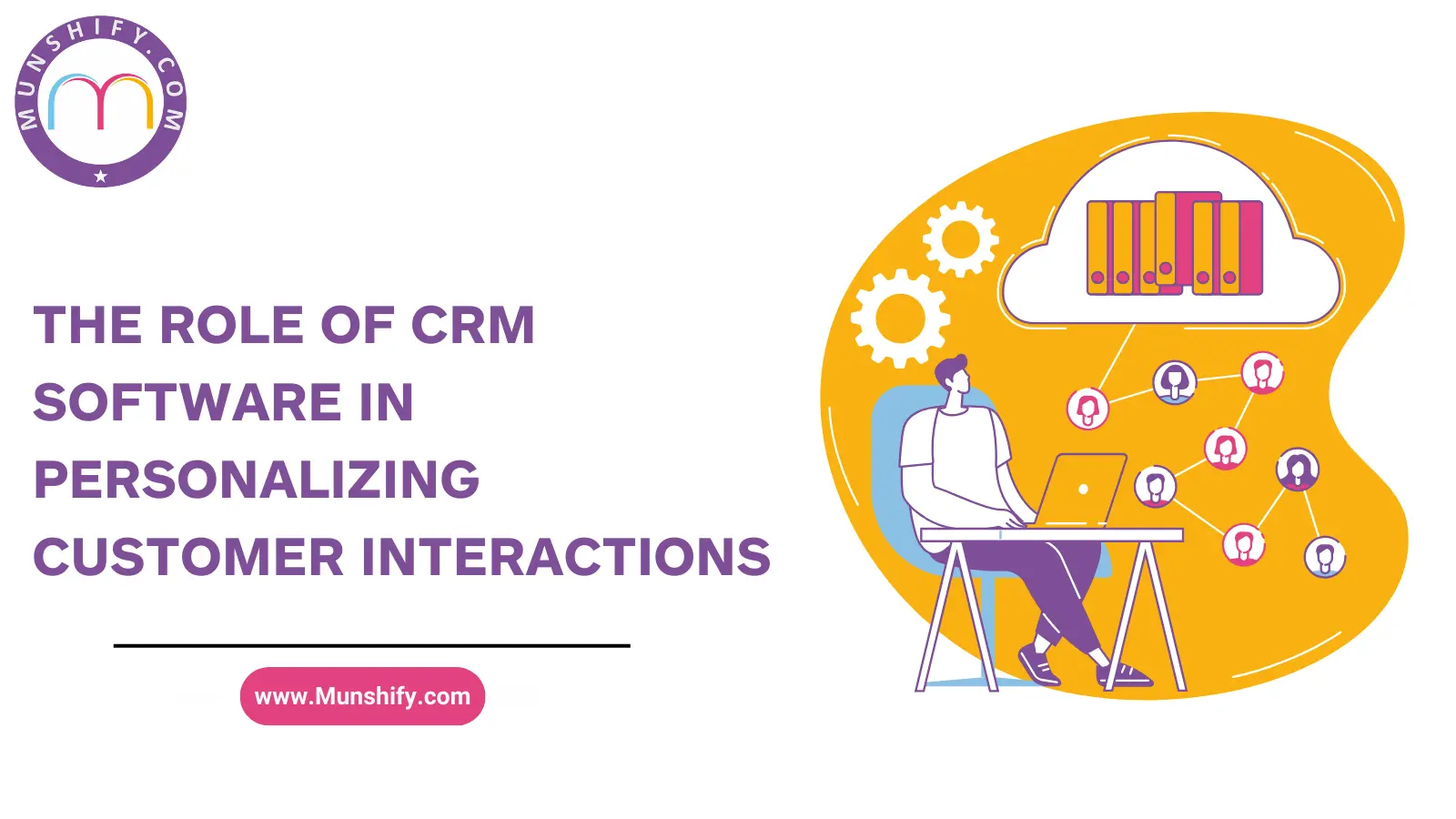In today’s highly competitive market, customer experience has become a key differentiator for businesses. Personalizing customer interactions can significantly enhance customer satisfaction, loyalty, and retention. This is where Customer Relationship Management (CRM) software comes into play. By leveraging CRM software, businesses can gather valuable customer data, analyze it, and use it to create personalized experiences that resonate with their customers. This blog will delve into the role of CRM System in personalizing customer interactions and how businesses can effectively implement it.
Table of Content
- What is CRM Software?
- The Importance of Personalization in Customer Interactions
- How CRM Software Enhances Personalization
- Choosing the Right CRM Software
- Implementing CRM for Personalization
What is CRM Software?
CRM System is a powerful tool designed to manage a company’s interactions with current and potential customers. It uses data analysis about customers’ history with a company to improve business relationships, specifically focusing on customer retention and driving sales growth. CRM software compiles data from various communication channels, including a company’s website, telephone, email, live chat, marketing materials, and social media. Businesses gain a comprehensive view of their customers through CRM System, allowing for more targeted and personalized communication.
Know more about Sales CRM Software.
The Importance of Personalization in Customer Interactions
Personalization is no longer just a nice-to-have; it has become a necessity. Customers expect businesses to understand their needs and preferences and to provide tailored experiences. Personalization can increase customer satisfaction, higher engagement rates, and improve brand loyalty. When customers feel valued and understood, they are likelier to remain loyal to the brand and recommend it to others. Personalization can also drive sales by providing customers with relevant product recommendations and personalized offers that meet their needs.
How CRM Software Enhances Personalization
CRM System enhances personalization by providing businesses with the tools to gather and analyze customer data. Here are several ways CRM software enhances personalization:
- Customer Segmentation: CRM System allows businesses to segment their customers based on various criteria, such as demographics, buying behavior, and preferences. This segmentation enables companies to tailor their marketing efforts and communications to different customer groups, providing a more personalized experience.
- Data Integration: CRM software integrates data from multiple sources, giving businesses a holistic view of their customers. This comprehensive data allows businesses to understand their customers better and create personalized interactions based on their preferences and behaviors.
- Automated Workflows: With CRM System, businesses can automate workflows to ensure timely and personalized communication. For example, automated emails can be triggered based on customer actions, such as completing a purchase or abandoning a cart, providing relevant and personalized communication.
- Customer Insights: CRM System provides valuable insights into customer behavior and preferences. By analyzing this data, businesses can identify patterns and trends, allowing them to create personalized marketing campaigns and offers that resonate with their customers.
- Enhanced Customer Support: CRM enables businesses to provide personalized customer support by tracking customer interactions and preferences. Support teams can access detailed customer profiles, allowing them to offer customized solutions and support.
Choosing the Right CRM Software
Selecting the right CRM System is crucial for successfully personalizing customer interactions. Here are some key factors to consider when choosing CRM System:
- Ease of Use: The CRM software should be user-friendly and easy to navigate. This ensures that all team members can use the software without extensive training.
- Customization: The ability to customize the CRM to fit the specific needs of your business is essential. Look for software that offers customizable features and modules.
- Integration: Ensure that the CRM System can integrate with other tools and systems that your business uses, such as email marketing platforms, social media, and e-commerce platforms.
- Scalability: Choose CRM that can grow with your business. It should be scalable and capable of handling increasing data and users.
- Customer Support: Reliable customer support is crucial. Ensure that the CRM software provider offers excellent customer support to assist with any issues or questions that may arise.
Implementing CRM for Personalization
Implementing CRM software to enhance personalization involves several key steps:
- Define Your Goals: Clearly define your aim with CRM software. This could include improving customer satisfaction, increasing sales, or enhancing customer support.
- Train Your Team: Ensure your team is adequately trained to use the CRM Tools. Provide comprehensive training sessions and resources to help them understand how to leverage the software for personalization.
- Integrate Data Sources: Integrate all relevant data sources with the CRM to ensure a comprehensive view of your customers. This includes data from your website, social media, email marketing, and other customer touchpoints.
- Segment Your Customers: Use the CRM Tools to segment your customers based on various criteria. This will allow you to tailor your marketing efforts and communications to different customer groups.
- Automated Workflows: Set up automated workflows to ensure timely and personalized communication. This could include automated emails, follow-up reminders, and customized offers based on customer actions.
- Monitor and Adjust: Continuously monitor the performance of your CRM software and adjust as needed. Analyze the data to identify areas for improvement and optimize your personalization efforts.
In conclusion, Munshify CRM Software is a powerful tool that can significantly enhance the personalization of customer interactions. By leveraging CRM software, businesses can gather and analyze valuable customer data, enabling them to create tailored experiences that resonate with their customers. Choosing the right CRM Tools and effectively implementing it can increase customer satisfaction, loyalty, and sales. As personalization continues to be a key driver of customer experience, investing in CRM is a strategic move for any business looking to stay competitive in today’s market.
Know more about CRM Management System.



